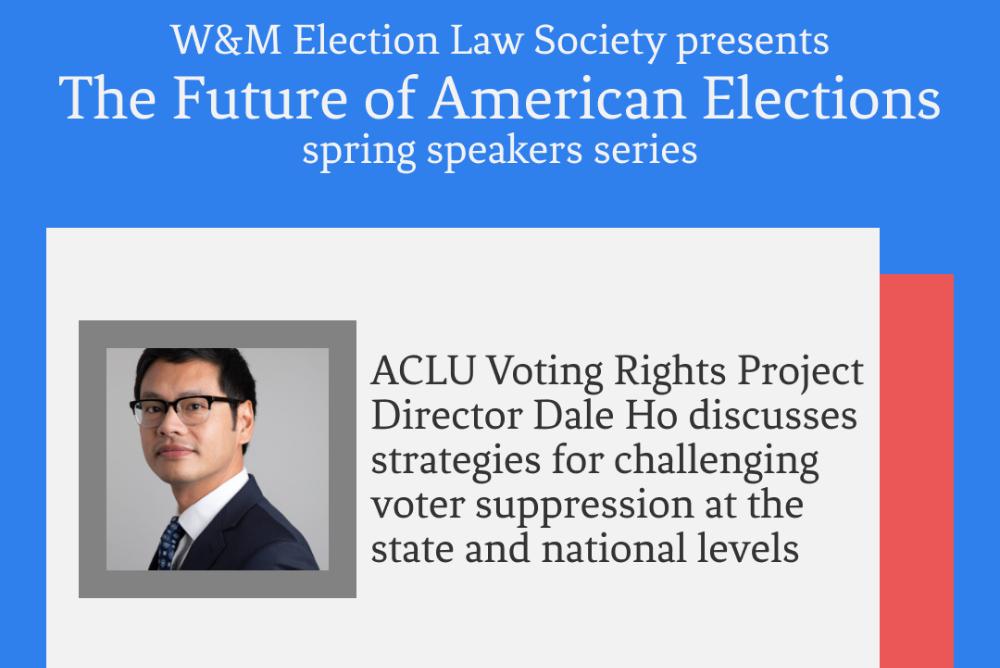Law School Events
[PAST EVENT] Election Law Society Presents: Dale Ho, ACLU Voting Rights Project Director
Location
Zoom
Dale Ho is the director of the ACLU's Voting Rights Project and supervises its nationwide voting rights litigation. In this capacity, he recently argued two cases in front of the Supreme Court. In Trump v. New York, Mr. Ho challenged the exclusion of undocumented immigrants from the population count used to apportion seats in the House of Representatives. In Department of Commerce v. New York, Mr. Ho successfully challenged the inclusion of a citizenship question on the 2020 census. He also served as lead counsel in Fish v. Kobach, successfully challenging a Kansas law requiring people to show a birth certificate or passport when registering to vote, a case that has been described by Slate as “the most significant voting rights case this century.” Ho has testified on election law issues before Congress, and in various state legislatures around the country. He serves as adjunct clinical professor of law at NYU and holds degrees from Princeton and Yale Law School.
Dale is a frequent commentator on voting rights issues, appearing on television programs including CNN, The Rachel Maddow Show; and All-In with Chris Hayes; he has written several pieces for the New York Times and is widely published on redistricting and voting rights in law reviews including the Yale Law Journal Forum and the Harvard Civil Rights-Civil Liberties Law Review.
Dale is the recipient of the 2020 Asian Law Alliance Legal Impact Award, and the 2019 National Asian Pacific American Bar Association (NAPABA) President’s Award. In 2018, he was named to the New York City Charter Revision Commission. In 2017, In 2017, Dale was named one of the best Asian American Lawyers under 40 by NAPABA.
Prior to joining the ACLU, Dale was Assistant Counsel at the NAACP Legal Defense Fund; an associate at Fried, Frank, Harris, Shriver & Jacobson LLP; and a judicial law clerk, first to Judge Barbara S. Jones, U.S. District Court for the Southern District of New York, and then to Judge Robert S. Smith, New York Court of Appeals.
